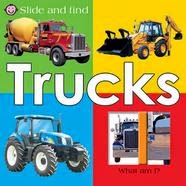 What I Learned On My September Vacation
What I Learned On My September Vacation
When I got my own personal laptop and was no longer sharing computers with family members, I became very excited over bookmarking sites. I bookmarked a lot of them. I classified them. I stockpiled the things and fantasized about reading them. I looked forward to reading them on this vacation I just took.
I did read a great many of them. And what I found was that in many cases I didn't need to have bothered. A lot of these things were repeats of information I'd already seen elsewhere. There is only so much information out there on writing and marketing, but there are a lot of blogs and websites with writers who have just discovered this stuff and think it is newsworthy.
How much time could I save myself by being a lot more discriminating about my reading material? Well, I decided, let's see.
Personal Precedent For Creating More Time By Cutting Reading
Quite honestly, I've been cutting reading for years.
- Giving up. Yes, yes, I used to be one of those readers who had to finish any book she started. It was an obsession or some kind of moral code. When did things change? I don't know. Maybe around the time I started hearing stories about a million books being published every year. (I don't know if that's actually true, by the way.) Which may have coincided with me reading one too many bad books. Which may have been around the time I realized life is short. I should be fussier about how I spend my time.
- Skimming. I also skim books, particularly those that have some significance in my field but I just don't like. Skimming definitely lets you hit the high points in a work, get a feeling for its world, and just find out what happens. "That's a skimmer," is a phrase I often use, but only to myself. (Did I just write that out loud?)
- I gave up reading listicles a year or two ago. There's something I've never missed. Seriously, ever seen a listicle called "The Top 10 Cures For Cancer" or "5 Ways To Find God?" Okay, you probably have. In which case, you know what I mean.
How Can I Cut More?
- Impose Limitations. Some time management specialists suggest making to-do lists on post-it notes in order to force yourself to be reasonable about what you can do in a day. I'm going to try limiting myself to just three to five bookmarks in any category. I want to add a new one? I have to take one off, either by reading the thing or just dropping it.
- Give Them A Chance To Make Their Case. To make the bookmark list, a post will have to meet a two-paragraph test. It has to prove to me in that time that it has material new to me or compelling in some new way.
- Size Matters. Personally, I believe the Internet is different. Material written for it should be concise. Otherwise, it should be in The New Yorker. Over the years, I've moved away from blogs that regularly ran long. I'm not saying I'll never read a magazine article on-line, but if I do, it won't be a random act.
- If You Haven't Read It In A Year... Ever hear that advice about getting rid of clothes you haven't worn in a year? Yeah, I could do that with bookmarks.
Seriously, How Much Time Do You Expect To Gain With This, Gail?
Hmm. Maybe not that much. But I won't have a long list of bookmarked sites hanging over my head, which can only be a good thing.











